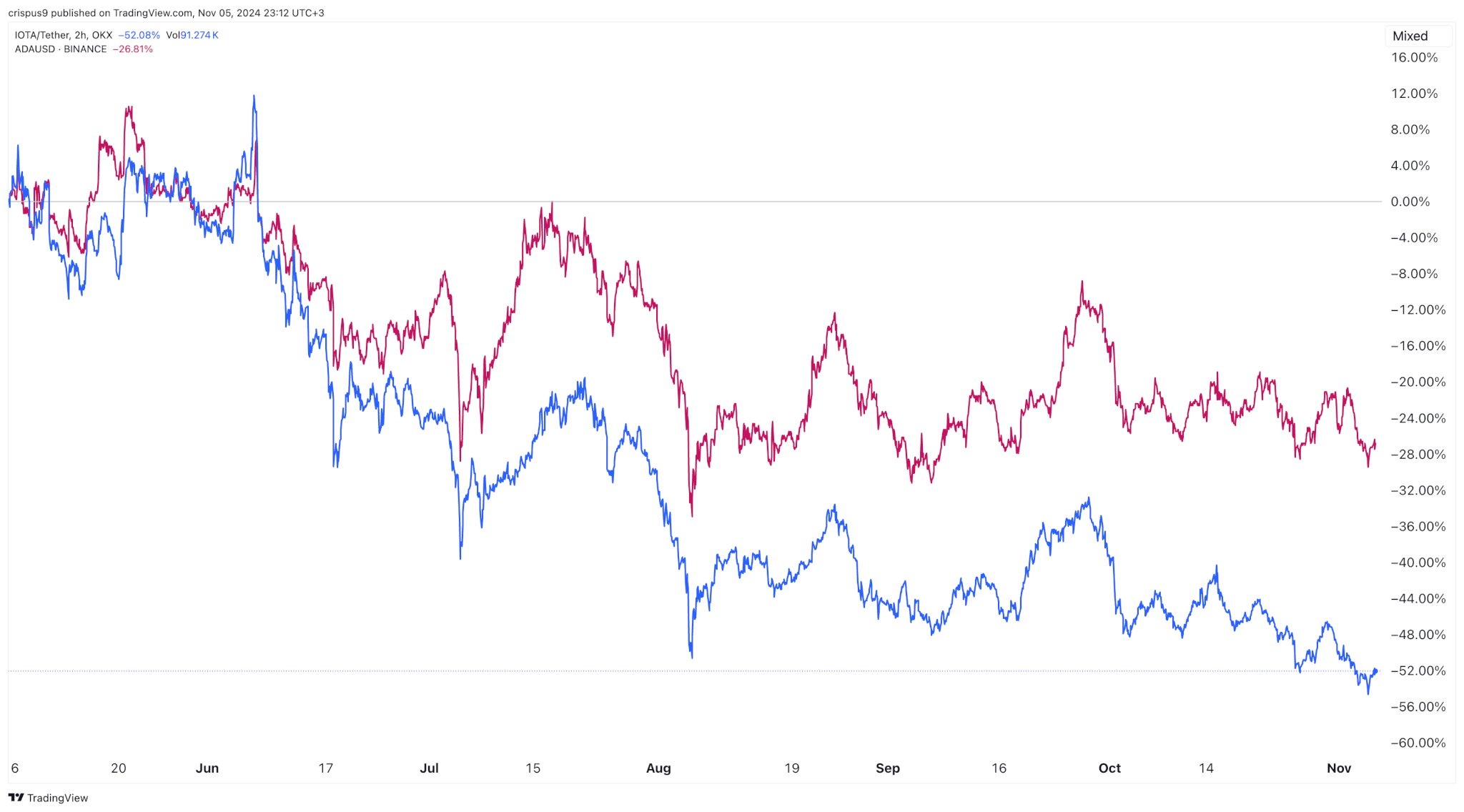Tether legal tender in Lugano, Switzerland – Interview with Tether CTO Paolo Ardoino

In September, El Salvador became the first country in the world to adopt Bitcoin as legal tender. A seminal moment for the crypto world at large, and attention then turned to who would be next.
Last week, we got our answer. Not a country, but a city – Lugano, the Italian-speaking city in Switzerland. Yeah, we didn’t expect it either.
A small city of only 62,000, a quick Google Image search will tell you that Lugano is magnificent; the city nestled stunningly by the eponymous lake in Switzerland. Now, it has a swanky new currency to match its jaw-dropping views. In fact, it has three of them. Lugano announced, via a partnership with Tether, that Tether, Bitcoin and LVGA (a CHF stablecoin launched by the city) are now “de facto” legal tender.
This means citizens can pay their taxes, parking fines, tuition fees, tickets to public events and more in crypto (I also managed to confirm that you can even pay your cemetery tax via the blockchain, in case you were wondering).
Plan B
The goal of the project goes beyond simply accepting crypto day-to-day, however. The aim is to establish Lugano as the blockchain hub of Europe. The city wants to attract crypto talent, startups and investment from around the world.
Tether Chief Technology Officer Paolo Ardoino spoke at the launch event, confirming a 100 million CHF ($107 million) fund for “start-ups that want to relocate here and want to put their headquarters here”. There will also be “3 million CHF investment into practical grassroots blockchain projects”, “a start-up hub for 25+ innovative companies”, a “space for meetups and workshops open to the public” and “500+ student grants for education in bitcoin and decentralised technologies”.
It’s certainly a tempting sales pitch for any young, enthusiastic crypto entrepreneur. And that’s before you catch a glimpse of Lake Lugano…
A very pretty Lake Lugano, via Paolo Ardoino’s Twitter
New Market
While El Salvador’s announcement perhaps had more of an impact on a macro scale, given Bitcoin was adopted by an entire country, the Lugano initiative is absolutely fascinating. It represents crypto’s first “official” foray into a first-world market. Furthermore, the inclusion of a stablecoin like Tether in the bill means there is a whole new layer here compared to the Central American country, who went all-in on Bitcoin alone. A large portion of the critics of El Salvador’s move centred on the violent volatility that Bitcoin can be prone to, and the harm that may cause citizens. Obviously with Tether (and LVGA), there is a peg to fiat and therefore the volatility is not an issue.
Naturally, we were very curious about the whole process and had some questions on the initiative. So we managed to interview the man closest to the action – Tether CTO Paolo Ardoino himself.
CoinJournal: Would it be possible (or could you ever forsee) a city or country adopting a stablecoin such as Tether as legal tender alone, or will it always be in conjunction with Bitcoin?
Paolo Ardoino: There will be more collaboration than competition between Bitcoin and stablecoins. Stablecoins, such as Tether, laid the groundwork for CBDCs.
Privately issued stablecoins will continue to grow and eventually, many governments will realize that stablecoins have distinct advantages over standard banking protocols.
Currently, the entire banking system relies on outdated technologies, so stablecoins have been a way to modernize it in a few quick steps.
I expect that 10 years from now, the technology layer being used by banks will be phased out and replaced with more advanced rails.
CJ: How many (or what percentage) of transactions do you expect will be conducted via crypto in Lugano, rather than Swiss franc?
PA: The City of Lugano aims to become a blockchain center of excellence and a global hub for European blockchain initiatives. We hope to see at least one out of every five transactions conducted via crypto as scaling and implementation occurs.
The current plan is to evaluate the flow of Bitcoin use, evaluate our treasury, and make an informed decision tied to the market as implementation takes place.
CJ: Switzerland’s cost of living is notoriously high. Do you think this will affect Plan B’s ambitions to attract businesses and entrepreneurs to the city?
No. Tether makes a significant contribution to a more connected ecosystem by introducing digital currency benefits, such as instant global transactions, to traditional currency and incorporating traditional currency benefits like price stability to digital currency. As such, Tether’s partnership with Lugano advances its mission to provide the most secure, fastest, and lowest cost way to transact with money, opening the door for businesses and entrepreneurs.
CJ: You mention a large goal of this process is to bring financial freedom to all citizens of Lugano. Do you think a decentralised stablecoin could be better positioned to do this? Or do you think given the fact it is still pegged to fiat, that stablecoins cannot facilitate this and a city needs to also adopt Bitcoin?
PA: In general, stablecoins are less volatile than other forms of blockchain because they are represented by fixed assets. They are built to withstand the volatility of the current market. As adoption becomes wider and we see more practical use of bitcoin, we estimate that blockchain and crypto will enter a period of stability and normalcy.
CJ: Did Lugano seek assurances on whether Tether was 100% backed, or were they content with what Tether has already released publicly on the matter?
PA: Tether and the city of Lugano sat down and openly discussed the misconceptions about the company. Tether has publicly stated that it has ongoing conversations with regulators and law enforcement and has made valiant efforts in complying with all requests for transparency.
Tether remains a leader in transparency and in getting information to the community and its stakeholders, and demonstrating full backing, and it wants to preserve that position. Tether is not just keeping up with regulation changes and assurances but helping law enforcement and regulators globally shape them.
Tether is committed to being a positive force in this space and its actions speak to that.
CJ: Are you in talks to partner up with other cities/countries, or do you foresee other places following Lugano’s lead?
PA: As we did with Lugano, we are eager to work with all the municipalities and countries of Europe; we would be honored to realize our vision and the future of finance in other areas.
CJ: At the Plan B conference, you referenced the force for good that crypto can do, in relation to the crypto donations accepted by Ukraine. But do you have concern crypto could also have an opposite effect, in that it could be used to circumvent economic sanctions (such as the sanctions being levelled on Russia)?
PA: In these uncertain times, we have seen an uptick in the utility of bitcoin and other cryptocurrencies. For one, they are being used to raise funds for legitimate civilian organisations that are helping people who are displaced or in danger. That is the beauty of this technology: the borderless and censorship-proof nature of bitcoin allows it to act as a safe haven during turbulent times.
With that being said, Tether is constantly conducting market monitoring to ensure that our operations are not in contravention of international sanctions. This is part of Tether’s rigorous compliance programme.
Tether regularly cooperates with global regulators and law enforcement requests and will comply with sanctions, as applicable, on assets pursuant to relevant law. We vow to continue to explore how Tether, as a platform can put procedures in place to protect all Tether users and the wider community.
The post Tether legal tender in Lugano, Switzerland – Interview with Tether CTO Paolo Ardoino appeared first on Coin Journal.


